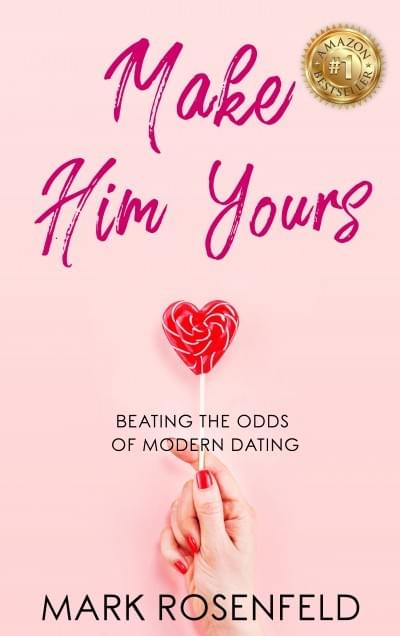I was speaking to a client recently who was three years out of a pretty toxic 18-year marriage. A marriage to a confirmed narcissist who robbed her of her confidence and self-efficacy for many of those years. Part of her recovery has been finding herself and her intuition again, as well as learning from her past mistakes so that her next relationship can be healthier and more fulfilling than her previous.

As I often do with clients, I took her on a dive back into her past with a fairly difficult question, “When was the very first time you or your intuition sensed something wasn’t right with him or the relationship?”
And as clients often do, this client gave an answer that demonstrated her intuition was dialed from the beginning. She said “it was about two months into dating him” (recall, 18 year marriage). She continued, “He was incredibly sensitive to a comment I made about his hair. From my end, it was a completely benign comment. Something like a playful ‘Your hair looks moppish today’. Dear god, did I wear that comment. I had to apologize profusely for days. I had to backpedal. I had to tell him umpteen times I didn’t mean it. It was an absurd overreaction for what I honestly thought was a harmless remark.”
Just two months into this 18-year relationship, this clients intuition had tagged that we all, men and women, should pay attention to: extreme oversensitivity.
If you see extreme oversensitivity or extreme insecurity early in dating, watch carefully how this is dealt with. Is it spoken through, worked on and vulnerably acknowledged? Or do you find yourself walking on eggshells so as to not trigger it again?
 It might not seem like a big deal, but some of the most heinous relationship crimes, from resentment and contempt to physical or emotional violence, happen because one or both individuals’ nervous system(s) feel the need to defend an extreme sensitivity and associated shame. At ANY cost.
It might not seem like a big deal, but some of the most heinous relationship crimes, from resentment and contempt to physical or emotional violence, happen because one or both individuals’ nervous system(s) feel the need to defend an extreme sensitivity and associated shame. At ANY cost.
To go deep for a moment, we’re a lot more AI than we think. We, just like AI robots, don’t have much conscious power for the first 5-7 years of our life, so we rely on basic learning to figure out the world.
Chocolate = Tasty = Find ways to get more chocolate; hand on hot plate = shit = keep hands off hot plates in the future.
As adults, our unconscious’ have a bunch of these per programmed ‘protections’ built in that we don’t think about.
- Don’t walk off buildings, even though it’s faster getting down that way.
- Wait for the food from the oven to cool down, even though you’re hungry RIGHT DAMMIT NOW.
- Careful not to give all your money to strangers, even though they will appreciate you for it.
These are all simple examples of basic protective programs we learned which operate unconsciously. This is all fine, until we get a program that becomes overly, or inappropriately, protective. Not stepping off a building (even though it’s faster getting down) is appropriately protective; violently attacking someone who is lightly flirting with your partner is not.
The reason an occasional program goes rogue and becomes inappropriately protective is because when we’re young, insecurities, sensitivities and shame can feel as threatening to our survival as high ledges. Thus, we sometimes build in programs that kick in just as hard to protect us from shame as if we were literally fighting an attacker for our life. When a protective system program is activated like this, its only outcome is survival, at ANY cost. That ‘cost’ includes any collateral damage: Partners. Walls. Animals. Whoever and whatever is around becomes regrettable but necessary collateral casualties if it means protecting the system.
In romantic relationships, guess who usually becomes that ‘disposable and necessary collateral’ of an overly or inappropriately protective nervous system program? The partner – you.
 Domestic violence doesn’t just happen. Almost no men or women wake up intending to become physically or emotionally violent. Violence is a desperate nervous systems last ditch effort to put out a life-threatening fire. Just like how firefighters will ruin your car to save you in an accident, we all have programs that, if we’re under enough survival threat, will activate to protect us, collateral be damned.
Domestic violence doesn’t just happen. Almost no men or women wake up intending to become physically or emotionally violent. Violence is a desperate nervous systems last ditch effort to put out a life-threatening fire. Just like how firefighters will ruin your car to save you in an accident, we all have programs that, if we’re under enough survival threat, will activate to protect us, collateral be damned.
Extreme oversensitivity can be managed, handled and even cured by talking, by expressing feelings and communicating through relationship difficulties, or by therapy. On the contrary, it CANNOT be handled by being pushed under the rug while you walk on more eggshells.
If extreme over-sensitivities are not processed or at least acknowledged in the relationship, then it’s highly likely that at some point, YOU will become the collateral damage necessary to protect the other person’s system. That is why you must take this red flag seriously. If you see extreme oversensitivity or extreme insecurity early in dating, watch carefully how this is dealt with. Is it spoken through, worked on, and vulnerably acknowledged? Or do you find yourself walking on eggshells so as to not trigger it again? The latter is an indication to run for the hills.
If you want to work with me personally, you can via this LINK or grab a copy of my book HERE.









